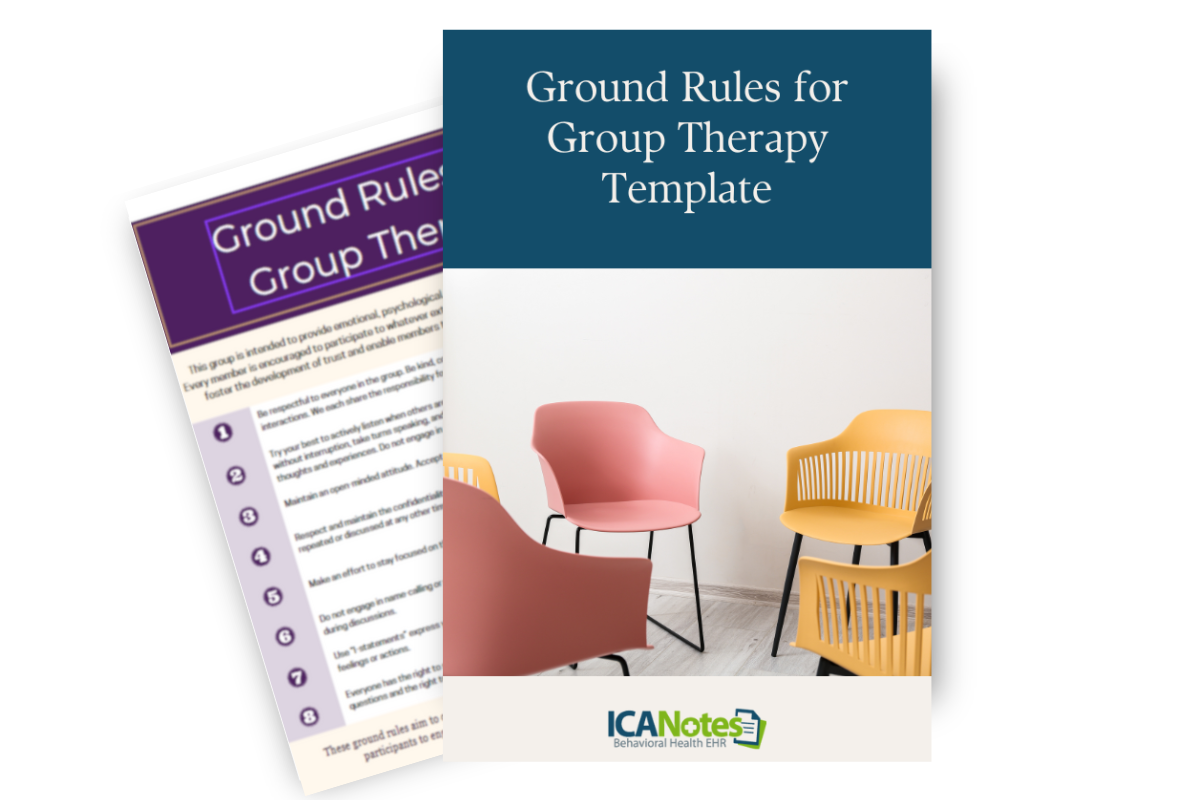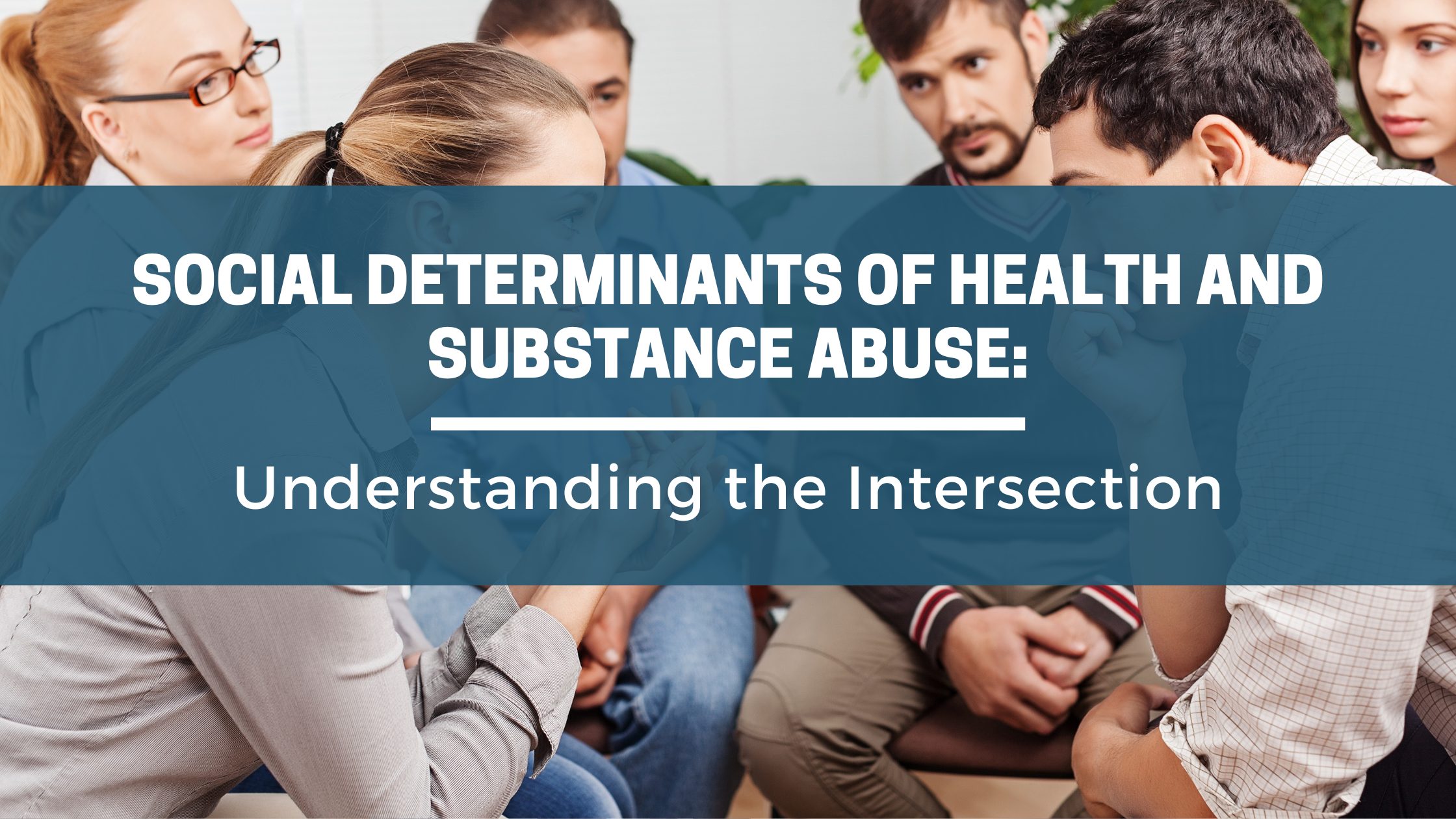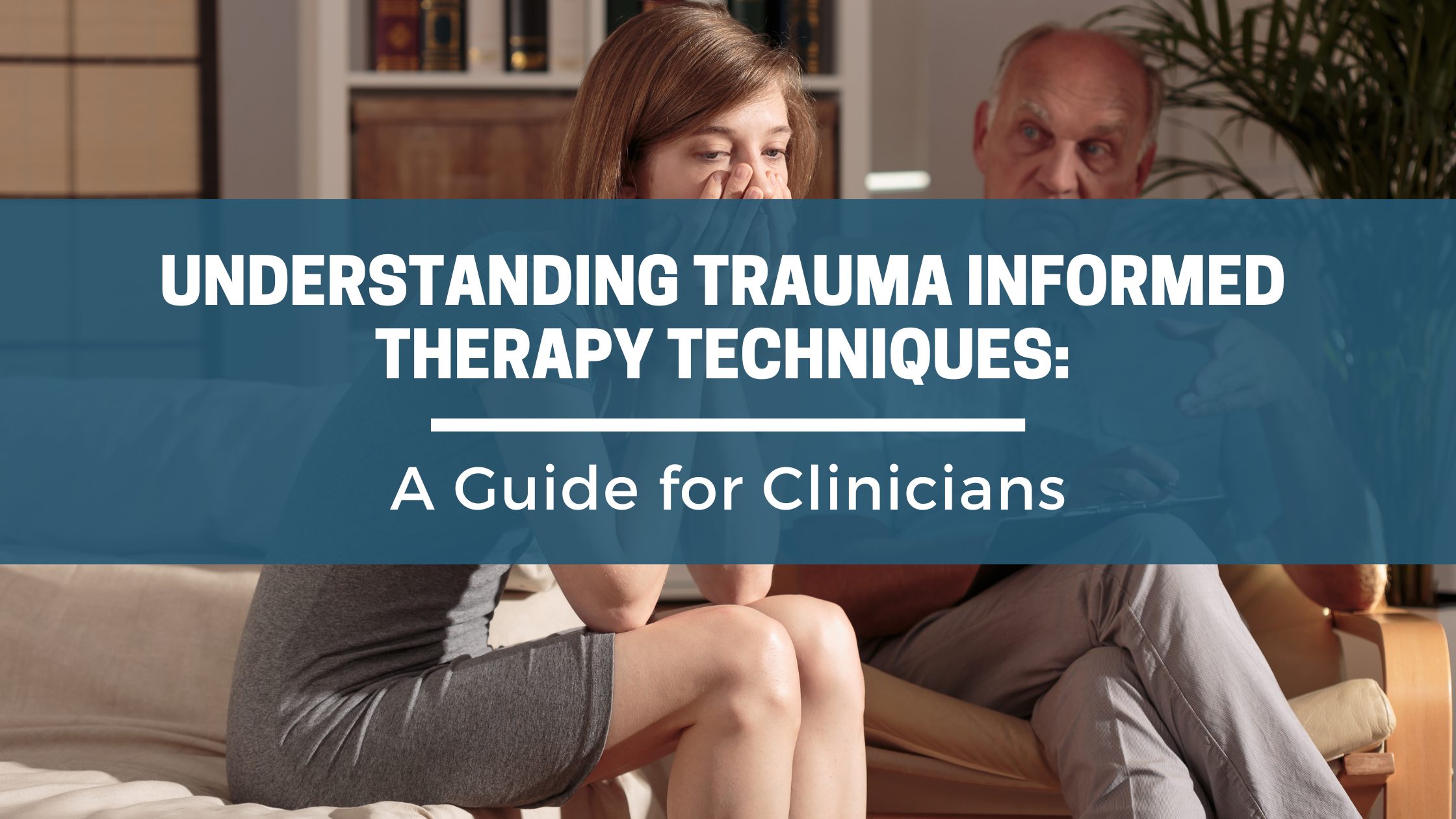
Establishing Effective Ground Rules for Group Therapy
Therapy groups greatly benefit from a foundation of trust, respect, and consistency. Some groups will naturally fall into this state, but most will require a set of rules to guide the process and set the tone. Establishing effective ground rules for group therapy can help create a safe, supportive, and rewarding experience for the clients and therapists.
Free Customizable Template: Ground Rules for Group Therapy
Download this free Canva customizable template.

Understanding the Purpose of Ground Rules
A therapy group without rules will quickly devolve into a messy, inconsistent, and unhelpful series of meetings attended by few clients. Therapy ground rules help clarify the notion that all people in the group are expected to act within certain limits. These rules are not hidden or assumed. They are actively discussed and presented to the clients. Often, clients will be given paper or digital copies of the rules to refer to.
Group rules may be presented during the client’s first session, or the therapist could require the client to read and agree to the established rules during the screening phase. Though specific rule lists may differ, they will all share the same goal of creating a balanced therapeutic environment where clients feel understood and safe.
Additionally, ground rules for group therapy are invaluable for their ability to help avoid, minimize, and resolve conflict. By clearly stating what is and what is not acceptable, group rules will shift behaviors and shape the expectations of every group session.
Key Elements of Effective Ground Rules
Effective ground rules for group therapy will all look different since they will be tailored to the specific therapy group. Despite these differences, there will be certain themes and values built around the ethical principles of psychology, counseling, and social work seen in the majority or group therapy ground rules.
Some of the essential elements of ground rules include:
- Confidentiality. What happens in group stays in group, so people should not be sharing intimate details of the group process with anyone outside of the sessions. Doing so can break trust and make people think twice about being honest.
- Privacy and respect. Even with the promise of confidentiality, a client should never feel pressured or forced into disclosing aspects of their life. Along these lines, group members and therapists should show respect for the clients and for the privacy of the group.
- Empathy and active listening. Clients may think that they are only in the group session to tell their story, but in reality, their ability to show empathy and actively listen to their peers is an essential function. Without attention and listening, the group cannot survive.
- Attendance and engagement. To make groups work, people need to show up consistently and engage in the process. If group members come sporadically or they spend more time doodling than working to help the group, they can throw off the group balance and rhythm. Engaging in the process also means being clear-headed and sober during sessions. Intoxication can trigger members and get the session off-track.
- Exclusive relationships. Though this rule may be unpopular with members, group clients should avoid relationships and communication outside of the group. Forming independent relationships, whether friendships or romantic in nature, can create negative impacts on the others in the session.
Each group may use different language to address these themes, but there should be some clear understanding of these issues in nearly every therapy group.

Avoiding Vague or Overly Complicated Lists
Therapists should work to find moderation between rules that are too vague and too complicated. When rules are too unclear and open to misinterpretation, conflicts can occur.
Similarly, the urge to have more rules could be appealing, but having so many rules makes each one lose value and risks confusing the clients. The rules for successful group therapy should fit on one piece of paper. They should be simple, clear, and concise.
Tailoring Ground Rules to Group Needs
All therapy groups are not the same, so they can not depend on a single, universal set of rules to govern them. Therapists who want to create the safest, healthiest environments possible will tailor the group rules of group therapy to the specific group.
Some groups that may benefit from a specialized set of rules include:
- Sexual abuse survivors
- People in recovery from alcohol or other drug addiction, especially early recovery
- People living in situations with domestic violence or controlling partners
- Those with sex or relationship addictions
- Sexual offenders, like those who have perpetrated against children
- People with specific phobias or anxieties
- Veteran groups
- Groups that deal with sexuality and gender identity
All groups will benefit from some level of ground rule customization, but the populations listed above will need extra attention and fine-tuning to establish a cohesive set of rules to guide the therapy process.
Implementing Ground Rules Effectively
In a group that is newly formed, it is the role of the therapist to share the group rules, but this might not be the case for all groups. In groups that are established with a core of consistent members, long-time members may lead the way in discussing and teaching the rules to newer members.
Not only are the rules for the clients, they apply to the therapists as well. If the therapist acknowledges this and emphasizes the benefits of the rules, they will set a positive example for the members to follow.
Effective implementation of group therapy ground rules will find balance for the members. They will feel enough structure to feel secure in the sessions while still experiencing enough flexibility and freedom to have a sense of power and ownership over the group.
Along these lines, rules for successful group therapy will outline the consequences of repeated rule-breaking and line-crossing. Whether it is a brief suspension of group sessions or a complete removal from the service, holding people accountable for these rules will be the task of clients and therapists alike.
Evaluating and Adjusting Ground Rules
Good therapy groups start with good rules, but as the group changes, the rules should change, too. With time, groups take on a life of their own and may grow and develop in ways that no one could have predicted. Using the same list of rules in session 100 that were in place during session one can be quite limiting.
Therapists and clients would do well to make the rules and potential rule changes a frequently discussed issue. If the therapist finds too much time taken up by rule discussion, they may establish “rule meetings” at regular intervals, like every three months or every 15 sessions.
In these meetings, the full list of rules will be reviewed with the ability to add new rules or subtract any that are deemed no longer necessary.

Final Thoughts
A successful and productive therapy group needs a set of ground rules to act as guiding lights that protect the group from damage. Without clear, concise, and concrete rules, the therapist creates risk in an unsafe environment.
On the other hand, a therapist who works with their group members to create and later edit group therapy group rules establishes structure and safety to the group process. When clients sense a safety net under them, they are more willing to take chances with open disclosure.
ICANotes has numerous, helpful options for creating and customizing group therapy progress notes. As a group therapy facilitator, you want to spend less time documenting and more time facilitating, so ICANotes make the process streamlined, thorough, and seamless, even for larger groups.
Our intuitive electronic health record software is designed to assist behavioral health professionals in crafting customized, detailed group therapy progress notes quickly and accurately. Experience the benefits firsthand by contacting our team at 443-347-0990 today or requesting your free trial. Take the first step towards better, more efficient group therapy note-taking with ICANotes.
About the Author

Eric Patterson, MSCP, NCC, LPC
Eric Patterson, MSCP, NCC, LPC, is a professional counselor who has been working for over a decade to help children, adolescents, and adults in western Pennsylvania reach their goals and improve their well-being.
Along the way, Eric worked as a collaborating investigator for the field trials of the DSM-5 and completed an agreement to provide mental health treatment to underserved communities with the National Health Service Corp.
Sources
Malhotra, Akshay and Baker, Jeff. (2022). Group Therapy, StatPearls.
Breeskin, John. (2011). Procedures and Guidelines for Group Therapy. American Psychological Association.
Gladding, S.T. (1994). Effective Group Counseling. ERIC Digest.
American Group Psychotherapy Association. (n.d.). Practice Guidelines for Group Psychotherapy.










